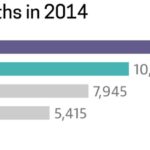The theory behind eating raw food is fairly simple: cooking food destroys its nutrients and natural enzymes. Since these naturally occurring enzymes boost digestion and fight chronic disease, heating food beyond a certain level (118 degrees) ruins the healthy aspects inherent in it. Some people also believe that cooking your food changes it chemically, from the substances needed for health into toxins, free-radicals, and poisons that destroy our health.
While there are a variety of claims about the benefits of a raw food diet, sticking to the simplest is always the safest. Claims about alkaline balances, Ph factors, and specific health benefits or curative properties should be taken with a grain of salt (pun intended).
Plus, cooking certain foods can boost some nutrients, like beta-carotene and lycopene, while killing bacteria, which helps you avoid food poisoning. Contrary to the claims of many raw food fans, cooking does not make food toxic but, instead, makes some foods digestible. Also – there is no scientific evidence that raw foods prevent illness.
Limitations of a Raw Food Diet
However, there certainly can be nutritional benefits to eating raw foods, since most of the foods you eat will be high in vitamins, minerals, fiber, and disease-fighting phytochemicals. Weight loss is also common among those who transition to a raw food diet because most of your food choices will be low in calories, fat, and sodium, and high in fiber.
“A raw food diet is low in calories, high in fiber, and based on primarily healthy whole-plant foods, so eating this way will lead to weight loss. But the diet is a nutritionally inadequate and highly restrictive plan that will be hard to stay on for the long-term. The risk of food poisoning from eating raw or undercooked foods outweighs the benefits of this plan.
In general, cooking makes your food more easily digestible and safer. There are some nutrient-rich super foods that can’t be eaten raw, such as beans, whole grains, and lean proteins.” (WebMD.com)
As with so many health trends and wellness fads, eating raw food has its place in your diet, with fruits and vegetables offering healthy alternatives to highly processed, high-sugar foods. Yet, going “completely raw” is rarely the best choice for the average person or family.
Click here for a more detailed exploration of the benefits and drawbacks to a raw food diet: NutritionSecrets.com.



